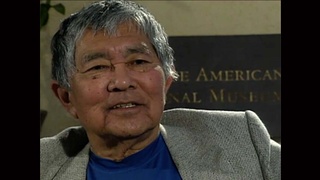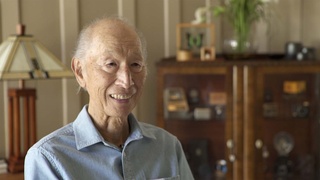Interviews
Being called out of Reserves
After George and I got to where we were working and we worked there, like I mentioned, Frank had come out with his family. He said, “If you don’t like where you’re working, there’s plenty of work in Chicago if you want to work there.” Being in the city, it seemed to be better. So we went to Chicago and worked there.
That was the middle of summer, and I think it was about October. They called me up and they called George. They had pulled us out of the Reserves. By that time, they had the 442 and they had the 100 Battalion pretty well organized. They could have been in Africa by 1944. Because the war ended in ’45.
We still hadn’t taken our basic training. Before I took my basic training, or when I was called up in Chicago, they said, “Do you have choice of where you want to serve in the army?” I said, “Yes, I’ll volunteer to be in Military Intelligence school.” And they said “Fine.”
George was inducted and he didn’t care where he went, so that’s why they send him down to Florida. And they took a basic training, and he was signed to go to replacement for 442. But by then, by then the war was over in Europe.
Date: February 6, 2015
Location: California, US
Interviewer: John Esaki
Contributed by: Watase Media Arts Center, Japanese American National Museum






